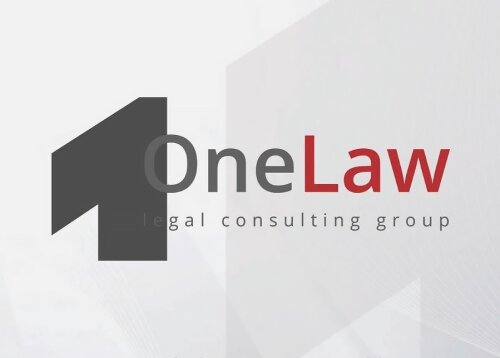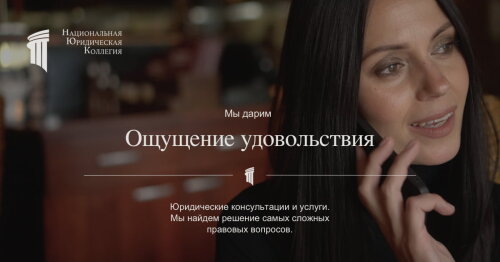Best International Trade Law Lawyers in Yekaterinburg
Share your needs with us, get contacted by law firms.
Free. Takes 2 min.
List of the best lawyers in Yekaterinburg, Russia

About International Trade Law in Yekaterinburg, Russia
International Trade Law in Yekaterinburg, Russia, involves the rules and regulations governing the exchange of goods, services, and capital between Russia and other countries. This legal field encompasses a wide range of topics including trade agreements, tariffs, import/export laws, and compliance requirements. Yekaterinburg, being a key industrial hub in the Ural region, plays a significant role in Russia's international trade and attracts businesses engaged in both import and export activities. As such, understanding the intricacies of International Trade Law is crucial for businesses operating in Yekaterinburg.
Why You May Need a Lawyer
A lawyer specializing in International Trade Law can provide invaluable assistance in various situations, including:
- Negotiating and drafting trade agreements or contracts with international partners.
- Ensuring compliance with local and international trade regulations and tariffs.
- Resolving disputes arising from trade activities or contract breaches.
- Navigating issues related to imports, exports, and customs procedures.
- Advising on trade sanctions and embargoes that may affect business operations.
- Assisting in matters of anti-dumping and countervailing duties.
- Guidance on intellectual property rights related to international trade.
Local Laws Overview
The legal framework for international trade in Yekaterinburg is essentially grounded in Russian federal laws, international treaties, and agreements to which Russia is a party. Key aspects of local laws include:
- Customs Regulation: The Federal Customs Service of Russia oversees the customs control and formalities for goods entering and leaving the country.
- Tariff Policies: Russia has a system of tariffs that applies to various categories of imports. Understanding applicable tariffs is essential for compliance.
- Trade Agreements: Russia is part of multiple international trade agreements that influence trade relations and regulatory environments.
- Export Controls: Specific goods may be subject to restrictions or require special licenses for export.
- Anti-dumping Laws: Russia employs anti-dumping measures to protect domestic industries from unfair foreign competition.
Frequently Asked Questions
What is the first step in engaging in international trade in Yekaterinburg?
The first step is to understand the legal requirements and obtain necessary licenses and permits for import/export operations.
Are there specific goods restricted from import or export?
Yes, Russia has a list of restricted goods including certain pharmaceuticals, weapons, and items of cultural value. Check with customs authorities for up-to-date information.
How can I ensure compliance with Russian trade regulations?
You can ensure compliance by consulting with a lawyer specialized in international trade, who can help navigate regulatory requirements and maintain proper documentation.
What should I know about tariffs when importing goods into Yekaterinburg?
It's important to understand the Harmonized System (HS) codes for goods and corresponding tariff rates. Consulting a customs broker or trade lawyer can be beneficial.
How do international sanctions affect trade in Yekaterinburg?
Sanctions can impact the ability to trade with specific countries or entities. It's crucial to stay informed about current sanction lists and legal constraints.
How are disputes in international trade transactions typically resolved?
Disputes can be resolved through litigation in Russian courts or arbitration, depending on the terms agreed upon in the contract.
What resources are available for understanding trade regulations?
Resources include the Federal Customs Service, the Ministry of Economic Development, and various trade associations. Legal guidance is recommended for detailed understanding.
What is the role of the Federal Antimonopoly Service in international trade?
The Federal Antimonopoly Service oversees market competition, including approving mergers/acquisitions and preventing unfair trade practices.
Are there incentives for businesses engaged in export activities?
The Russian government offers various incentives for exporters, including subsidies, tax reliefs, and assistance programs.
How are intellectual property rights protected in international trade?
Intellectual property rights in trade are protected under Russian law and international treaties, requiring businesses to register their rights and combat infringement actively.
Additional Resources
For further understanding and assistance in International Trade Law, consider consulting:
- The Federal Customs Service: For guidelines on customs procedures.
- Chamber of Commerce and Industry of Russia: Offers resources and support for businesses involved in international trade.
- The Ministry of Economic Development: Provides information on trade policy and economic programs.
- Local law firms in Yekaterinburg: Many firms specialize in international trade law and can offer expert advice.
Next Steps
If you need legal assistance in International Trade Law:
- Identify and consult with a knowledgeable trade lawyer with experience in Russian and international trade issues.
- Gather all relevant documents and have a clear understanding of your business transactions to discuss with your lawyer.
- Stay informed on current laws and updates in international trade regulations by attending workshops or contacting legal associations.
Lawzana helps you find the best lawyers and law firms in Yekaterinburg through a curated and pre-screened list of qualified legal professionals. Our platform offers rankings and detailed profiles of attorneys and law firms, allowing you to compare based on practice areas, including International Trade Law, experience, and client feedback.
Each profile includes a description of the firm's areas of practice, client reviews, team members and partners, year of establishment, spoken languages, office locations, contact information, social media presence, and any published articles or resources. Most firms on our platform speak English and are experienced in both local and international legal matters.
Get a quote from top-rated law firms in Yekaterinburg, Russia — quickly, securely, and without unnecessary hassle.
Disclaimer:
The information provided on this page is for general informational purposes only and does not constitute legal advice. While we strive to ensure the accuracy and relevance of the content, legal information may change over time, and interpretations of the law can vary. You should always consult with a qualified legal professional for advice specific to your situation.
We disclaim all liability for actions taken or not taken based on the content of this page. If you believe any information is incorrect or outdated, please contact us, and we will review and update it where appropriate.












